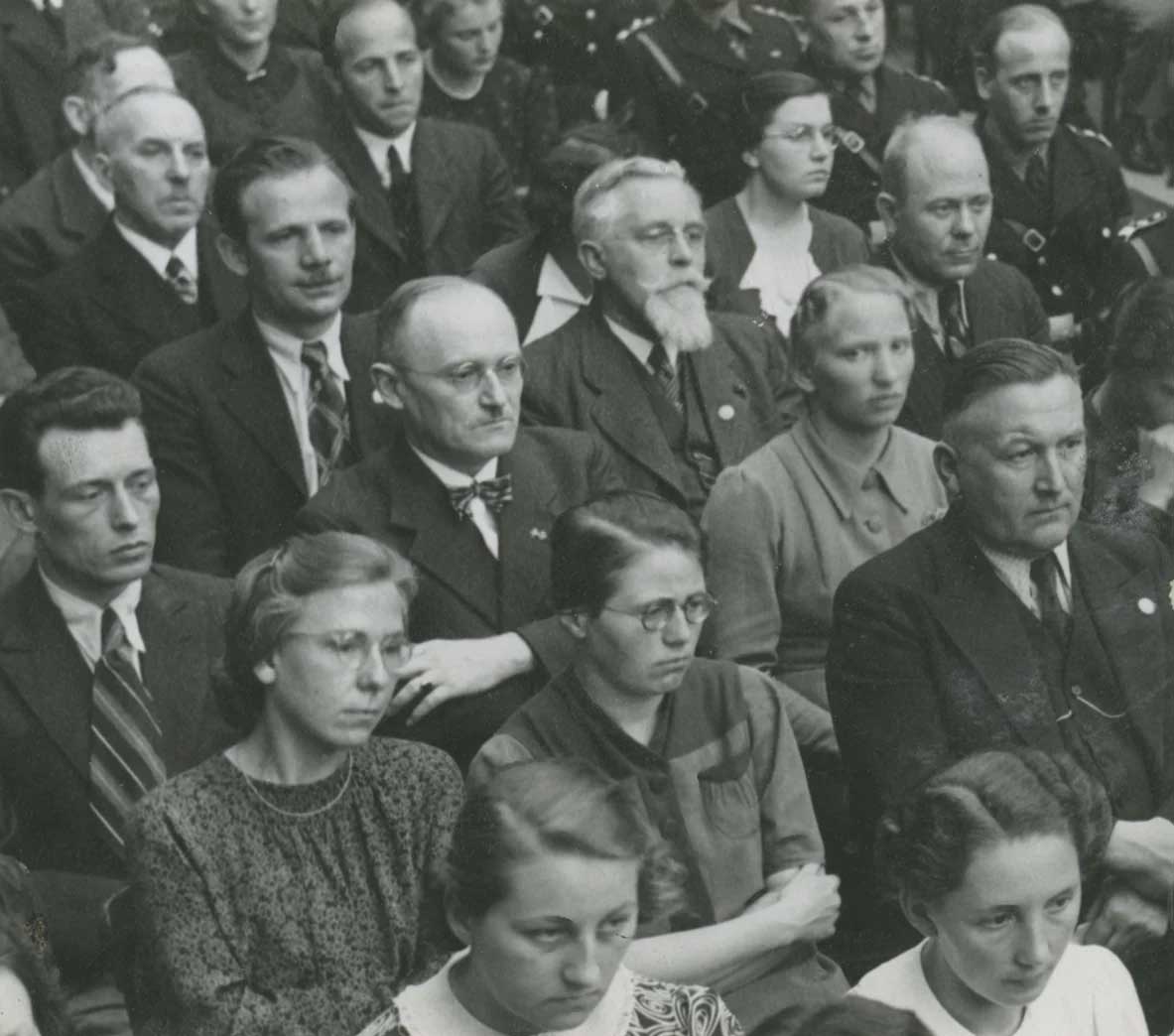-
Allianz's management
-
Jewish employees at Allianz
National Socialism influenced the working climate and ethical standards throughout industry. It also affected the behavior of and relationships among Allianz's more than 10,000 employees.
In 1933, Hans Hess became Kurt Schmitt's successor as General Director of Allianz. Together with board member Eduard Hilgard, he exerted a decisive influence on business development and the company's sociopolitical position right up to the end of the Second World War.
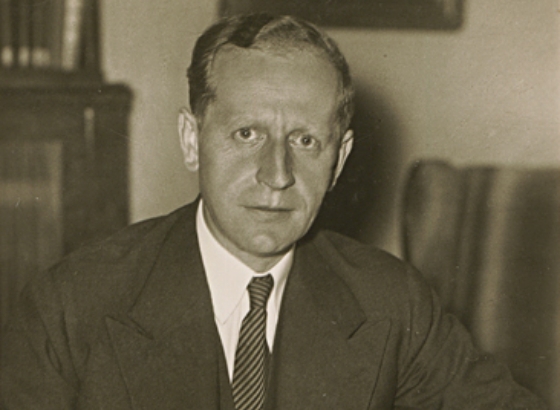
Hans Hess (1881 - 1957)
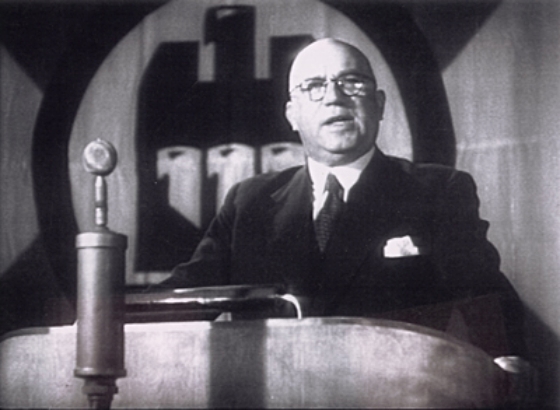
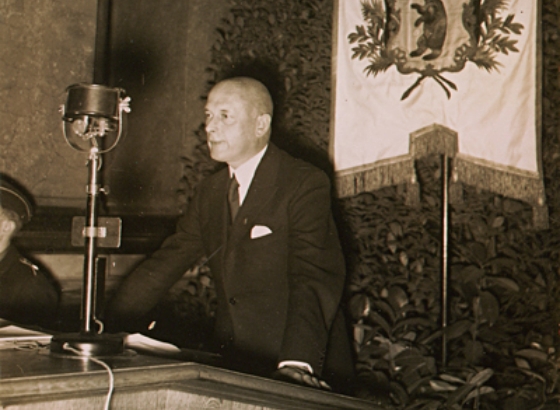
Eduard Hilgard (1884 - 1982)
-
Definitions
-
Chronicle
National Socialist Party (NSDAP)
The "National Socialist German Workers Party" was the party of Adolf Hitler. It was founded in 1920 and was the only political party permitted in Germany after the Nazis seized power in 1933. Among the defining features of its ideology were racism, anti-semitism, opposition to democracy, and aggressive territorial expansion. It grew from a splinter group to a mass-based organization with 8.5 million members.
Reich Insurance Group
Founded in 1934, the Reich Insurance Group (Reichsgruppe Versicherung) was the central association and umbrella group for Germany's insurance companies. It was headed by Eduard Hilgard, a member of Allianz's board of directors.
Eduard Hilgard (1884-1982)
- 1921-44 Member of the Allianz Board of Directors
- 1933 Vice Chairman of the Allianz Board of Directors
- 1933 Chairman of the Reich Private Insurance Association
- 1934 Head of the Reich Insurance Group
- 1944 Retired from the Allianz Board of Directors
- 1948-53 Member of the Allianz Board of Supervisors
Kurt Schmitt (1886-1950)
- 1913 Joins Allianz
- 1917 Member of the Board
- 1921-33 Chairman of the Board
- 1933-35 Reich Economics Minister
- 1935-45 Member of the Allianz Board of Supervisors
- 1938-45 Chairman of the Board of Münchener Rückversicherung
- 1945-49 Denazification
Hans Hess (1881-1957)
- 1917 Hired by Allianz as an organizational director
- 1918-48 Member of the Allianz Board of Directors
- 1933-48 Chairman of the Allianz Board of Directors
- 1948-54 Chairman of the Allianz Board of Supervisors
The exclusion of Germany's Jewish population began with laws barring Jews from holding civil-service posts. In the private sector, it also became increasingly difficult for Jews to retain their jobs. Jewish employees in senior positions were the first victims of the prevailing antisemitic atmosphere, and this was also the case at Allianz.
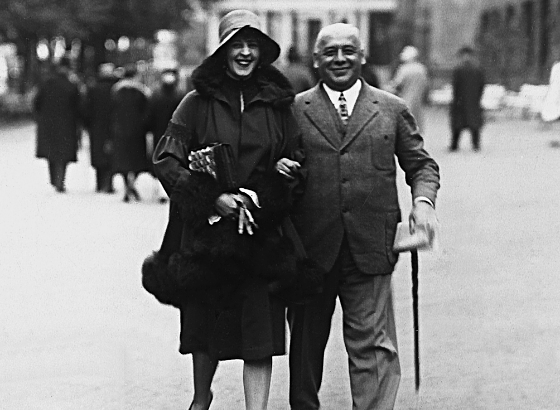
James Freundenburg and his wife Erika in Marienbad, April 30, 1929.
James Freudenburg (1875 - 1944)
Director of the Frankfurt branch, 1924-34
In 1934, James Freudenburg had to step down from his post as Chairman of the Board at a Frankfurt subsidiary of Allianz. He was forced to retire in 1936 at the age of 61. James Freudenburg was not able to leave Germany - he was deported and murdered in Auschwitz in 1944.
Maximilian Eichbaum (1881 - 1958)
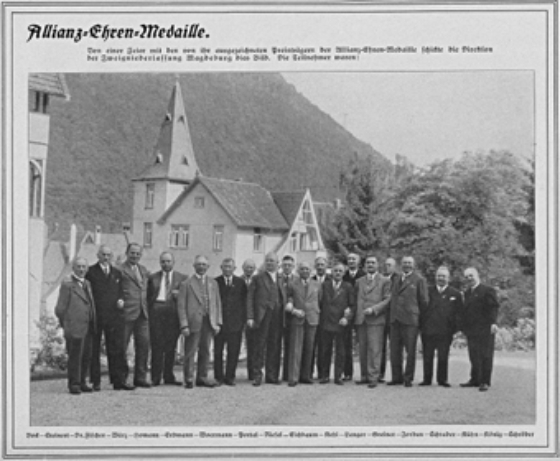
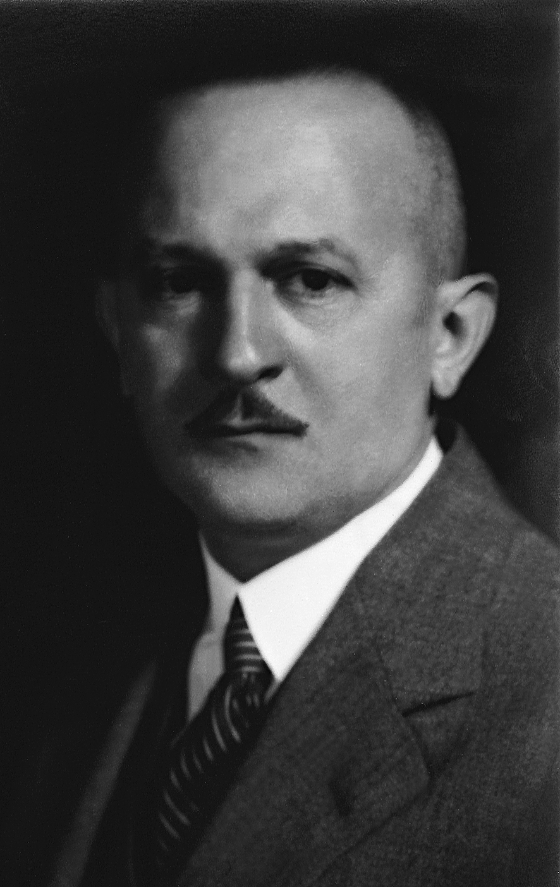
Martin Lachmann (1880 - 1941)
Hugo Kettner (1877-1955)
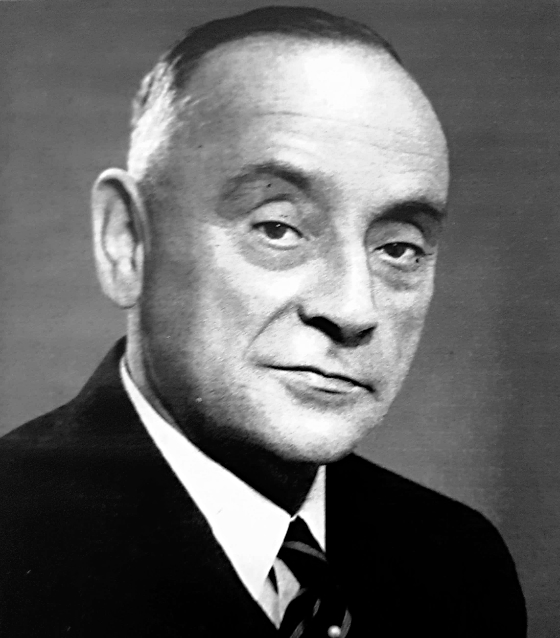
-
Chronicle
James Freudenburg (1875-1944)
- 1875 Born in Brunswick on December 11.
- 1919 Joined Allianz.
- 1923 Director of the Stuttgart office. Director of the Frankfurt office.
- 1936 Forced into retirement during the expulsion of Jews from Germany's economic life.
- 1943 Deported on September 20. James Freudenburg was murdered in Auschwitz on January 10, 1944.
Maximilian Eichbaum (1881-1958)
- 1923 Member of the Board of Wilhelma Insurance in Magdeburg, which merged with Allianz in 1923.
- 1924 Director of Allianz's Magdeburg office.
- 1930-35 Member of the Board of Allianz.
- 1937 Forced into retirement in October at the age of 56 during the expulsion of Jews from Germany's economic life. Emigration to South Africa. Maximilian Eichbaum worked in South Africa with an Allianz-related insurance company until 1943, when he became an independent insurance agent.
Martin Lachmann (1880-1941)
- 1907 Allianz insurance salesman in Berlin.
- 1920s-early 1930s One of Allianz's most successful insurance agents.
- 1939 Contract with Allianz canceled during exclusion of Jews from Germany's economic life.
- Martin Lachmann was deported to Minsk, where he was murdered on November 16, 1941.
